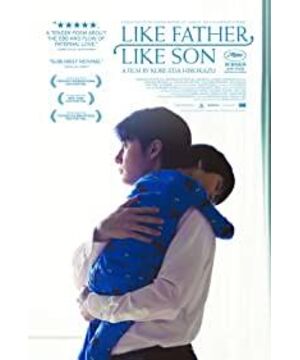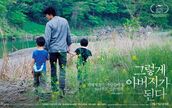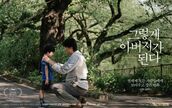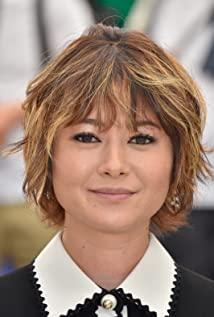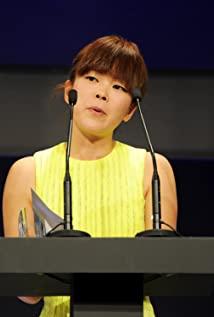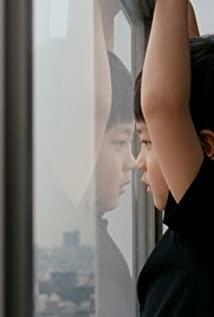Because I knew in advance that the core of the story was the bloody old stalker of "The Child Holds the Wrong Babies", and I was no stranger to Shige Hiroka's "Elephant Invisible Hidden Skills", so I took full precautions at the beginning of the movie. But I don't know from which minute, he was trapped by the silent plot of moisturizing, dismantled the line of defense, threw his armor and armor, surrendered, and fell into the moving pit.
It's not too difficult to move people. The tear point in all movies is nothing more than three words-"break, shed, and leave". Think about it in "A Song of Ice and Fire" in which little Alia flees for nine deaths in blood. She is about to meet her relatives across a river, but she hears the sad news that her mother and brother are dead; old Martin has already pinched a little and knocked the death knell. When the reader didn't know, he fell into the ambush of tears. "Father Like Son" also uses big vulgarity: Fukuyama Masaharu's Nonomiya seems to have a perfect life, but suddenly he has to face a difficult choice: whether to give up raising his cute boy for more than six years. Many, in exchange for his biological son, Liu Qing, who is related by blood-this stem, filming a 60-episode Korean drama, can definitely cause 200 million people to cry.
The brilliance of "Father Like Son" is that a spicy radish kimchi is slowly simmered into a kimchi soup, more precisely, it is carefully prepared into a delicate kimchi sushi. The script is well-made. There are only a few scenes, two pairs of parents and four people’s backgrounds, backgrounds, and social status have been clearly explained. Details such as "biting the straws" that distinguish between classes make people have to admire the director's carefulness. send. Those short lines in the parents seem to be unnecessary, but there is no idle pen. They are everywhere. You can't think of the blurt out "Do you know that Spider Man is a spider?". After a sudden effort, I found it. Waist eyes with tears.
It was Yuka Kee that was like this. He could cry and scatter dog blood at any time, but tried his best to keep the characters in the play calm and calm together. Everyone, including the children, is actively and rationally advancing the resolution of the matter. The director threw all the burdens of the entangled choice on the audience, making them want to cry for the people in the play at any time-this kind of casually pulling the audience's tear ducts, the old way, but not the film is all wise: if only the sensational superiority is only In the technique itself, no matter how forbearing the sensationalism, it is still sensational.
I think "As Father Like Son" is good because it started with tears and is higher than this, without allowing the audience to stay in a condescending state of sympathy, but with the help of the soulmate story, a rigorous system is constructed to explain the relationship between father and son. Compared with the long description of the cute and adorable son, Qing Duo, the few pens of Luqing are equally wonderful. When Fukuyama Masaharu played many Liuqing and asked Liuqing to call her father, Liuqing politely and tenaciously talked back. , Father-son dialogue is common but powerful: "why", "no why?", "why no why?". Compared with Qingduo's sensible, Liuqing's stubbornness and aggressiveness obviously have a lot more genes, and Liuqing's last "sorry" is also like a lot of her own lines. These few scenes make people admire the thoughtfulness of the script: Qingduo melted a lot with the emotions cultivated by the day after tomorrow, but Liuqing used her inherited genes to prove her existence.
At the end of the film, "As Father Like Son" gave an open and happy ending. Regarding the choice of emotion and reason, the audience is very proud to praise the "love is to stay with the children" and "isn't father also a profession?" in the film. But "Father Like Son" is not a hymn to the pastoral-style parent-child life. While giving Liuqing a halo of love to his adoptive father, the director also spared no effort to exaggerate his discordant behavior in social life. I don't think the director has made superior judgments in the father-son relationship of the two classes. The contradiction between social roles and family roles is an open-ended answer for the father Hirokazu. "As Father Like Son" is not a confession, it is more like a helpless sigh.
Human history is complicated and long, and it is only the inheritance of father and son, the combination of blood relationship and education. And most of people's choices are entangled, and they are the struggle between rationality and sensibility. "As Father Like Son" puts the two topics together, and the whitewashing ending seems to show that the ideal state is: don't let reason swallow the impulse of emotion, don't let emotion, let emotion replace rational choice. The most correct measure of sensationalism is probably here.
View more about Like Father, Like Son reviews


